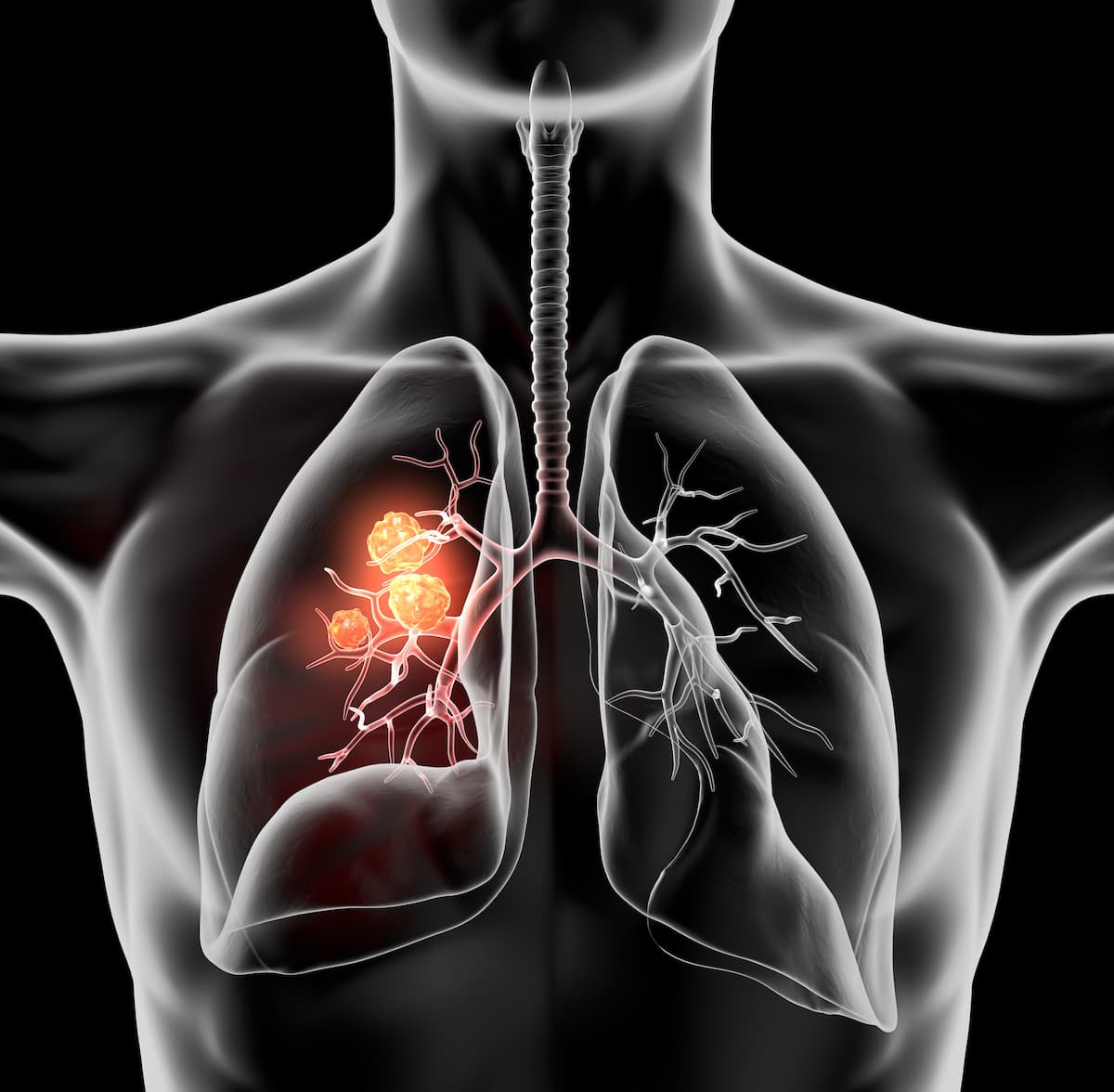Patritumab Deruxtecan Yields Meaningful, Enduring Activity in EGFR+ NSCLC
Investigators also report that patritumab deruxtecan is well tolerated in those with EGFR-mutant non–small cell lung cancer in the HERTHENA-Lung01 study.
“To our knowledge, the results of HERTHENA-Lung01 [NCT04619004] presented here provide the largest evaluation to date of the efficacy and safety of HER3-DXd [monotherapy] once every 3 weeks in this population, and also provide the largest assessment of a targeted therapy after the failure of osimertinib [Tagrisso]," according to the study authors.

Treatment with patritumab deruxtecan (HER3-DXd) in patients with locally advanced or metastatic, EGFR-mutated non–small cell lung cancer (NSCLC) resulted in clinically meaningful efficacy and long-lasting responses in those who progressed following EGFR tyrosine kinase inhibitor (TKI) therapy and platinum-based chemotherapy, according to data from the phase 2 HERTHENA-Lung01 study (NCT04619004).
In a population of 225 patients who were treated with HER3-DXd at a dose of 5.6 mg/kg once every 3 weeks, the confirmed overall response rate (ORR) by blinded independent central review (BICR) was 29.8% (95% CI, 23.9%-36.2%). Investigators reported a median duration of response (DOR) of 6.4 months (95% CI, 4.9-7.8), and 43.3% had responses lasting 6 months or longer.
“For patients with advanced EGFR-mutated NSCLC that has progressed after EGFR TKI therapy and [platinum-based chemotherapy], current treatment options provide only limited clinical benefit,” the authors wrote. “To our knowledge, the results of HERTHENA-Lung01 presented here provide the largest evaluation to date of the efficacy and safety of HER3-DXd [monotherapy] once every 3 weeks in this population, and also provide the largest assessment of a targeted therapy after the failure of osimertinib [Tagrisso].”
The multi-center, open-label, randomized study included a population of patients with locally advanced or metastatic NSCLC harboring EGFR mutations. The study took place at 122 locations across North America, Europe, East Asia, Southeast Asia, and Australia.
To be included in the study, patients were required to have disease that had progressed on or following their most recent therapy; previous therapies needed to include at least 1 EGFR TKI and at least 1 platinum-based chemotherapy. Although those with clinically inactive or treated brain metastases that were asymptomatic were eligible for enrollment, those with previous or current proof of interstitial lung disease could not enroll.
While patients in arm 1 received a fixed dose of 5.6 mg/kg of HER3-DXd, those in arm 2 were treated with 3.2 mg/kg on day 1 of cycle 1, 4.8 mg/kg on day 1 of cycle 2 and cycle 3, and 6.4 mg/kg in subsequent cycles.
The study’s primary end point was ORR by BICR, with secondary end points including DOR by BICR, confirmed ORR and DOR by investigator assessment, progression-free survival (PFS), disease control rate, time to response, overall survival (OS), and safety.
A total of 277 patients were enrolled from February 2, 2021 to February 18, 2022. Additionally, 225 patients who were treated with at least 1 dose of HER3-DXd once every 3 weeks made up the efficacy and safety groups. The study’s primary cutoff date was November 21, 2022, and the median follow-up was 18.9 months (range, 14.9-27.5). At the cutoff, a total of 212 patients had discontinued treatment, and 13 continued receiving ongoing treatment.
The median patient age was 64 years, and over half of all patients were women (58.7%). Additionally, most patients were Asian (46.7%) or White (40.9%). At baseline, investigators also reported that 51.1% of patients had a history of brain metastases, and 32.0% had radiologic evidence of brain metastases.
The median PFS was 5.5 months (95% CI, 5.1-5.9), and median OS was 11.9 months (95% CI, 11.2-13.1). Importantly, antitumor activity was comparable among those with and without central nervous system metastases. Outcomes among those treated with a third-generation EGFR TKI were comparable to those of the main efficacy population.
The median dose intensity was 5.5 mg/kg per cycle with a relative dose intensity of 97.7%. The most common grade 3 or higher treatment-emergent adverse effects (TEAEs) were hematologic and included thrombocytopenia (20.9%) and neutropenia (19.1%). Common any-grade TEAEs included nausea (66%), thrombocytopenia (44%), decreased appetite (42%), and neutropenia (36%).
Reference
Yu HA, Goto Y, Hayashi H, et al. HERTHENA-Lung01, a phase II trial of patritumab deruxtecan (HER3-DXd) in epidermal growth factor receptor–mutated non–small-cell lung cancer after epidermal growth factor receptor Tyrosine kinase inhibitor therapy and platinum-based chemotherapy. J Clin Oncol. 2023;41(35):5363-5375. doi:10.1200/JCO.23.01476